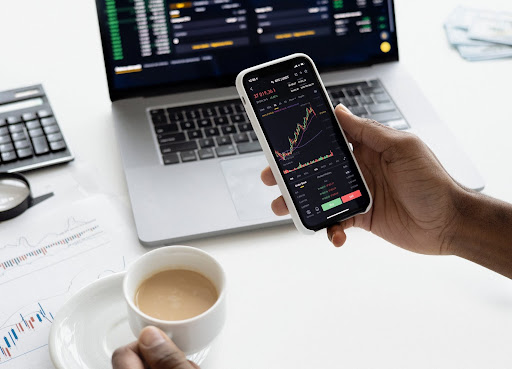Introduction
In the fast-moving consumer goods (FMCG) sector, efficiency and convenience are key drivers of success. Wholesalers catering to B2B customers, including the Hospitality, Restaurant, and Catering (HoReCa) segments, can significantly benefit from the implementation of self-ordering apps. These digital tools streamline the ordering process, enhance customer experience, and boost operational efficiency. This blog explores the numerous benefits of launching self-ordering apps for B2B and HoReCa customers in the FMCG wholesale industry.
Enhanced Customer Experience
Convenience and Accessibility
24/7 Ordering
Self-ordering apps enable customers to place orders at any time, removing the constraints of traditional business hours. This convenience is particularly beneficial for the HoReCa sector, where businesses often operate outside standard hours.
User-Friendly Interface
A well-designed self-ordering app provides an intuitive and seamless user experience. Customers can easily browse products, check availability, and place orders with just a few clicks, reducing the time and effort required.
Personalized Experience
Tailored Recommendations
Self-ordering apps can offer personalized product recommendations based on past purchase history and preferences. This feature helps B2B and HoReCa customers quickly find the products they need and discover new items that may be relevant to their business.
Customizable Orders
For the HoReCa sector, the ability to customize orders—such as specifying quantities, packaging options, or delivery times—can greatly enhance the ordering experience. This flexibility ensures that customers receive exactly what they need to run their operations smoothly.
Increased Operational Efficiency
Streamlined Order Processing
Automated Order Management
Self-ordering apps automate the order management process, reducing the need for manual intervention. Orders are directly entered into the ERP system like #Zoho, #QuickBooks, and #Xero minimizing errors and ensuring accurate order fulfilment.
Real-Time Inventory Updates
By integrating with inventory management systems like #ZohoInventory, #Cin7, #Quickbooks Inventory and #Xero inventory management, self-ordering apps provide real-time updates on product availability. This feature helps prevent stockouts and overordering, ensuring customers can confidently order.
Improved Communication
Instant Notifications
Customers receive instant notifications about their order status, from confirmation to dispatch and delivery. This transparency reduces the need for follow-up calls and emails, enhancing customer satisfaction.
Direct Messaging
Self-ordering apps often include messaging features that allow customers to communicate directly with the wholesaler. This direct line of communication can be used to address any issues or special requests quickly and efficiently.
Cost Savings and Increased Revenue
Reduced Operational Costs
Lower Administrative Costs
Automating the ordering process reduces the administrative burden on staff. This efficiency allows wholesalers to allocate resources to other critical areas of the business, such as customer service and sales.
Decreased Error Rates
Manual order processing is prone to errors, which can lead to costly returns and dissatisfied customers. Self-ordering apps minimize these errors, reducing associated costs and improving order accuracy.
Boosted Sales
Upselling and Cross-Selling Opportunities
Self-ordering apps can be programmed to suggest complementary products or higher-value alternatives during the ordering process. These upselling and cross-selling opportunities can increase the average order value and drive additional revenue.
Customer Loyalty Programs
Incorporating loyalty programs within the app can incentivize repeat purchases. Customers can earn points or rewards for their orders, encouraging them to continue buying from the wholesaler.
Data-Driven Insights
Customer Behavior Analysis
Purchase Patterns
Self-ordering apps collect valuable data on customer purchasing behavior. Wholesalers can analyze this data to identify trends and preferences, enabling them to stock the right products and anticipate customer needs.
Customer Segmentation
Data from the app can be used to segment customers based on various criteria such as order frequency, order value, and product preferences. This segmentation allows for targeted marketing campaigns and personalized promotions.
Inventory Optimization
Demand Forecasting
Analyzing order data helps wholesalers forecast demand more accurately. This insight enables better inventory planning, reducing the risk of overstocking or stockouts and ensuring a steady supply of products.
Supplier Management
Wholesalers can use data from the app to manage their supplier relationships more effectively. By understanding which products are in high demand, they can negotiate better terms and ensure timely deliveries from suppliers.
Competitive Advantage
Differentiation in the Market
Innovative Solutions
By offering a self-ordering app, wholesalers position themselves as innovative and customer-centric. This differentiation can attract new customers and retain existing ones, setting the business apart from competitors who may not offer such advanced solutions.
Enhanced Customer Loyalty
Providing a convenient, efficient, and personalized ordering experience builds customer loyalty. Satisfied customers are more likely to continue doing business with the wholesaler and recommend the app to others.
Scalability and Growth
Easy Scalability
Self-ordering apps can easily scale to accommodate growing customer bases and expanding product lines. This scalability ensures that the app remains functional and effective as the business grows.
Market Expansion
Wholesalers can use the app to reach new markets and customer segments. The digital nature of the app allows for easy adaptation to different languages and regions, facilitating market expansion efforts.
Sysco
Sysco, a leading global foodservice distributor, launched a self-ordering app to streamline the ordering process for its HoReCa customers. The app's success in improving order accuracy and customer satisfaction led to increased sales and stronger customer relationships.
Conclusion
Launching self-ordering apps for B2B and HoReCa customers offers numerous benefits for FMCG wholesalers. These apps enhance customer experience, increase operational efficiency, reduce costs, and drive revenue growth. By leveraging data-driven insights and offering innovative solutions, wholesalers can gain a competitive edge in the market and ensure sustained growth. In an increasingly digital world, investing in self-ordering apps is a strategic move that can transform the way wholesalers interact with their customers and run their businesses.













.jpg)































.jpg)




%20-%20The%20Ultimate%20Guide.jpg)























